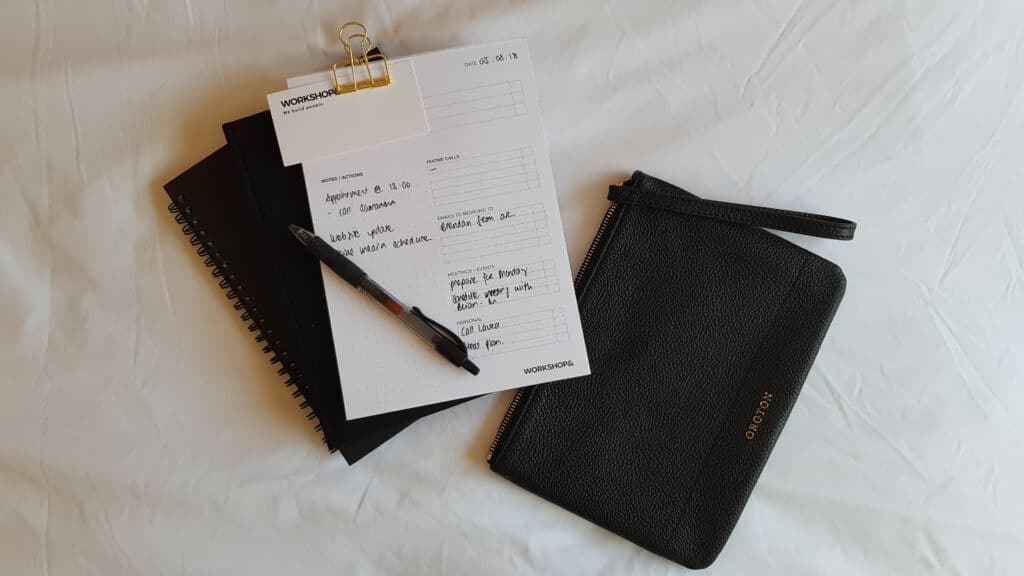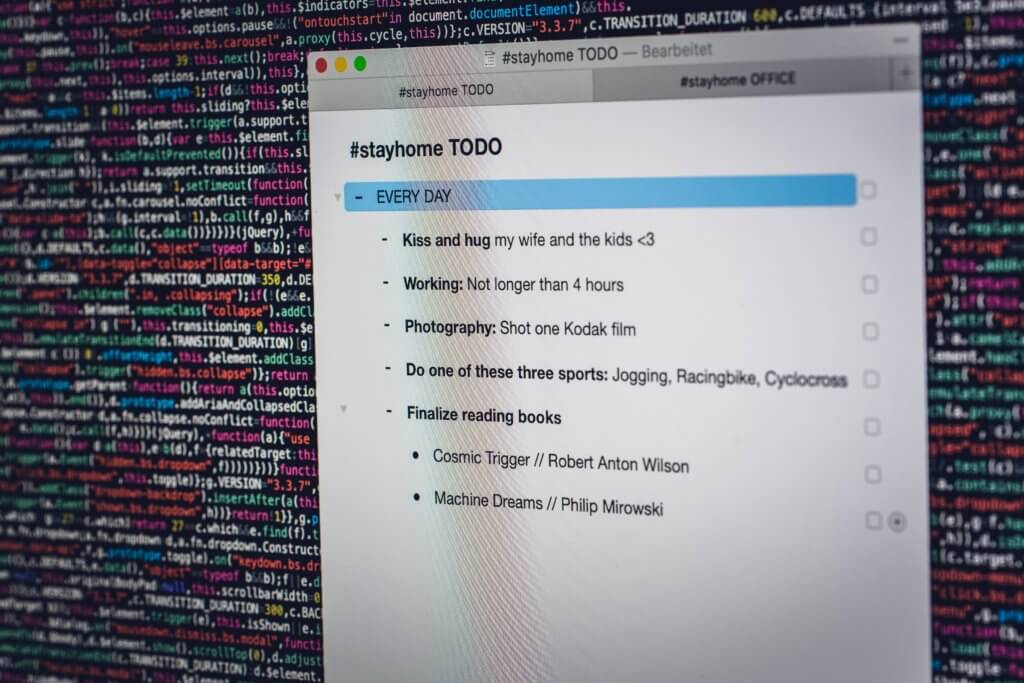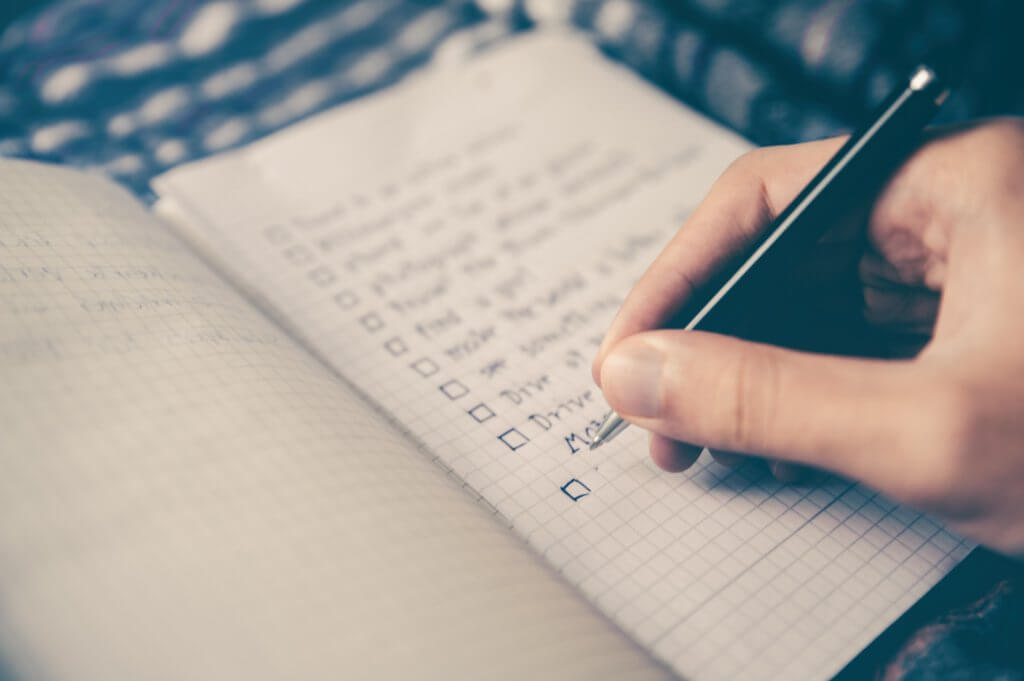5 Proven Methods to Get Things Checked Off of Your To-Do List
Does your day begin and end with an automatic recounting of everything on your to-do list?
Do you cross off one thing, only to add four more tasks on your plate?
If your job title is something like “Master of Juggling Dozens of Tasks at Once,” then you might need to revise how you’re tackling your day.
Sure, you’ve become quite well at your juggling job. But over time, it can be exhausting.
When you get tired, how many of those little tasks fall? And what happens when they do?
Instead of keeping up at an impossible pace, take a step back and regroup. See how you can adjust your schedule before it becomes too much.
Yes — it’s possible! These five proven methods to check things off of your to-do list have worked for people with task lists just like yours, and they can work for you, too!
1. Write a Purge List
For many people, a to-do list becomes a repetitive cycle of crossing off a task, only to add some more. We spend the evenings focused on everything we didn’t get done, falling asleep high strung.
Part of what makes us so stressed is that our minds are constantly churning with things we don’t want to forget. Subconsciously, we are bombarding ourselves with these items, so we remember them.
You can save yourself the added stimuli from your repetitive, worried psyche by calming it down with a daily purge list.
When you get up in the morning — or when you start to feel overloaded with tasks — force yourself to stop for a few minutes. Find a quiet place where you can think and pull out a sheet of paper and a pen.
Purge everything that’s in your brain. This is also called a “brain dump.”
Write it down and keep it where you won’t lose it. A pocket-sized notebook that you can travel with would be perfect.
Use that purge list when you put your to-do tasks together. When you know that you controlled your tasks this way, you can easily push worrisome thoughts aside when they crop up later.
2. Find a Calendar System
Are you one of those people who writes out a list, only to lose it somewhere? Or post-it notes fill up your desk, ignored daily?
A calendar system is crucial, but everyone’s needs are different. Don’t just grab a calendar because it’s cute, or you like the inspirational quote feature. Find one that is going to do the job you need it to complete.
Make a list of the main factors you want in your system, such as to-do pages, the ability to transfer tasks to the next day, or room to write a free-flowing script.
If you prefer digital task-keeping, play around with a few apps until you find your favorite. Some trending calendar apps that have free functions include:
Paper and pencil is still the way for many of us. But there are almost too many calendar options available.
Use your must-have list to narrow down a calendar to the best possible choice, then train yourself to stick to using it.
3. Get Focused
Multitasking seems like the way it has to be, but this skill could be detrimental to your success.
Experts now say that work done through multitasking is often less quality. In fact, they warn that multitasking is bad for your brain health!
Many of us seem to have turned multitasking into an Olympic sport. So how do you go from something that once was as automatic as breathing to stopping?
First — breathe.
Then, try some of these simple tips to remind you to focus when you want to get it all done right now.
- Knock out the hard stuff first. It’s tempting to put those things off, but then you’re too tired to do them later.
- Set a background app timer to limit your distractions. Decide what your most significant black holes are and use the app to keep you from sinking into them.
- Keep visuals of your goals nearby. An occasional glance is a stimulus to remind you of what you’re working toward.
Multitasking can be something you don’t even realize you’re doing, so be patient. Old habits die hard. Constant gentle reinforcement when you notice you’ve gone astray is the critical element.
4. Decide Your Commitment Level
When your tasks are overflowing, something will have to give. Unfortunately, that “something” is usually your hobbies, family, or other cup-filling activity.
But if you don’t get to do at least a few things you enjoy every day, you’ll burn out quickly.
To keep this crash and burn from being unavoidable, slow down. You don’t have to do everything. The sun will rise again tomorrow if you say no to something your heart isn’t in.
The truth is, other people are looking for your help to get them from making commitments they don’t want to do. What about you? What do you not want to do?
Look over your tasks and decide if you are genuinely committed to tackling everything on your list. Is every item on there something that only you can do? Or something that makes you happy to complete?
Whatever you waver on, see if you can put it off for a less stressful day. Delegate what you can and give yourself time to recharge your own batteries without feeling guilty.
5. Begin and End Your Day with a Plan
There’s a warning in the business world: Failure to plan is planning to fail.
This phrase fits your daily life, too. When you have a lot of things to accomplish, making a plan for how to tackle them is crucial.
Start your day by taking control and setting goals from your purge list. Look at what you didn’t get to yesterday and add it where you can today.
End your day by reviewing your successes and areas you need to work harder on tomorrow.
It’s a constant cycle of setting goals and reflecting on your work habits. Some days will go better than others. Time for reflection will force you to be honest about where you need to change.
Conclusion
The world keeps spinning round and round. That doesn’t mean your checklist has to.
With these five proven methods, it’s possible to get yourself caught up, take time to relax, and still be productive.
Life is for living, not constant task-checking. It’s terrific to yield high results in your day — but not if it’s causing you to forget to stop and smell the roses!




